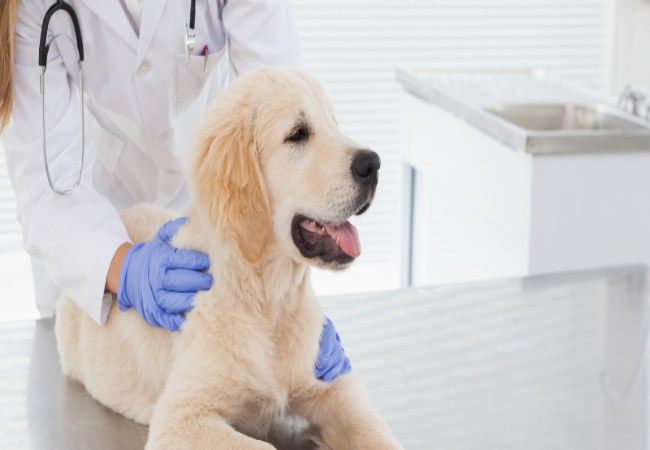Zoonotic Diseases in Urban Pets: What Every Owner Should Know 🐶

In this article
Zoonotic Diseases in Urban Pets: What Every Owner Should Know 🐶
By Dr. Duncan Houston BVSc
Live in a city? Walk your dog through parks, streets, or shared apartment gardens? Share your bed with your cat? Then you need to know about zoonotic diseases—because pet health is also your health.
At Ask A Vet, our veterinarians specialize in early detection and prevention of zoonotic disease in pets. Whether you're raising a rescue dog in a high-rise, walking two Frenchies through busy laneways, or keeping an indoor cat with occasional outdoor access, understanding zoonotic risks could save your health—and your pet's.
🌍 What Are Zoonotic Diseases?
Zoonotic diseases are illnesses that can pass from animals to humans. Dogs, cats, rodents, birds, reptiles—even livestock and poultry—can carry pathogens that affect people. In urban environments, these diseases often spread silently through:
- Public dog parks and communal areas
- Contaminated soil or water in shared gardens
- Airborne particles, saliva, fur, and feces
- Parasites like fleas, ticks, and worms
While most pet lovers don’t need to panic, they do need to stay informed and proactive. That’s where Ask A Vet comes in.
Download the Ask A Vet app to log symptoms, track deworming schedules, get real-time vet advice, and avoid zoonotic risks before they escalate.
🐕 Most Common Zoonotic Diseases in Dogs (Urban & Suburban)
1. Giardia (Giardiasis)
A waterborne parasite found in puddles, communal bowls, or soil. Dogs contract it by sniffing or licking contaminated areas—and yes, it spreads to humans.
- Symptoms in dogs: Soft stool, diarrhea, weight loss
- Symptoms in humans: Gastrointestinal upset, vomiting, fever
Prevention: Use safe water sources, clean paws after walks, and use vet-approved dewormers. Ask A Vet has specific parasite prevention plans based on your location and pet lifestyle.
2. Leptospirosis
Spread through the urine of infected animals (especially rats), this bacterial disease is serious and zoonotic. Common in city dogs exposed to puddles, sewer overflow, or rat-prone areas.
- Dogs: Lethargy, vomiting, fever, kidney/liver damage
- Humans: Flu-like symptoms to organ failure
Protect your dog: Vaccinate annually. You can log and track vaccines in the Ask A Vet app.
3. Roundworms and Hookworms
Found in soil and feces, especially in communal pet areas or uncollected poop. Larvae can migrate through human skin or affect children’s eyes and organs.
- Prevention: Monthly deworming (track with Ask A Vet), clean up poop immediately, and wash hands after handling pets or soil.
🐈 Top Zoonotic Diseases in Cats (Even Indoors!)
1. Toxoplasmosis
A parasitic infection that can cause serious complications in pregnant women and immunocompromised individuals. Cats are the primary hosts, but it’s spread via litter boxes or contaminated meat.
- Symptoms: Most cats show no signs; humans may experience fever, fatigue, or complications in pregnancy.
Prevention: Clean litter daily (wear gloves), don’t feed raw meat, and track feline health in the Ask A Vet app.
2. Bartonella (Cat Scratch Disease)
This bacteria can pass from cats to humans via scratches or bites. Often asymptomatic in cats but can cause serious illness in humans.
- Tip: Keep nails trimmed and avoid rough play.
3. Ringworm (Fungal)
Despite its name, it’s not a worm—but it is zoonotic and very contagious. Cats often carry it on their skin and fur, especially long-haired breeds like Ragdolls and Persians.
Symptoms: Bald patches, scaly skin, redness in pets and people.
Sanitation tip: Disinfect bedding and soft toys weekly.
🐓 Farm & Exotic Animal Zoonoses
Even urban hobby farms and backyard chickens carry zoonotic risks. If you keep chickens, goats, pigs, reptiles, or exotic pets, be aware of these:
- Salmonella: Common in reptiles, poultry, and raw food.
- Psittacosis: Found in birds, causes pneumonia in people.
- Q Fever: From goats, sheep, and cattle—serious for pregnant humans.
Track herd health, vaccination, parasite control, and breeding history with Ask A Vet’s farm animal tools. Even if you have just a few animals, the app helps you log outbreaks, set health reminders, and avoid major loss.
🧪 Zoonotic Disease Prevention: Vet-Led, Not Google-Led
Want to avoid unnecessary vet bills and keep your household safe? Follow these top prevention strategies:
- 📱 Use the Ask A Vet app to track health, parasite control, vaccines, and symptoms
- 🧼 Practice hygiene: wash hands after touching animals, bowls, or bedding
- 💩 Pick up after your pets—no exceptions
- 🧴 Use vet-approved parasite control (monthly is ideal)
- 🧠 Don’t guess—Ask A Vet if your pet shows any behavior or health changes
🛍️ Vet-Approved Products That Help
We recommend the following gear to help keep your pets clean, safe, and healthy during urban adventures:
- Ask A Vet QR Pet Tags – Digital ID that links to your pet’s profile, health history, and emergency contact info
👩⚕️ Final Thoughts: Your Pet’s Health Protects Yours
Zoonotic diseases aren’t just a buzzword—they’re a reality of modern pet ownership, especially in cities where animals mix, share space, and encounter public areas.
But with education, good hygiene, and tools like Ask A Vet, you can enjoy pet life without risking your health—or theirs.
👉 Download the Ask A Vet app to track parasite prevention, log unusual symptoms, and speak directly to a certified veterinarian before a minor concern becomes a major problem.
Because at Ask A Vet, we don’t just care for your pets. We protect your whole family. 🐾






